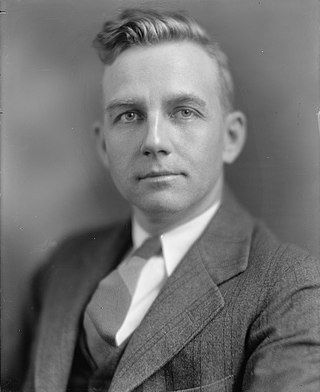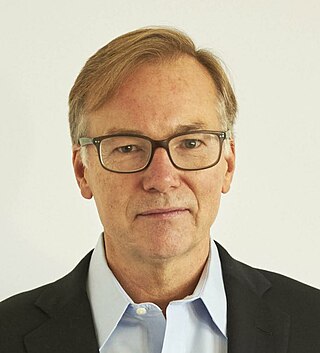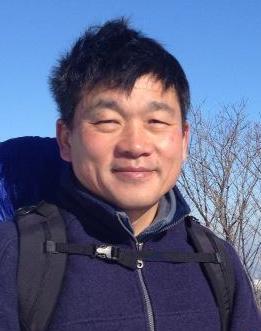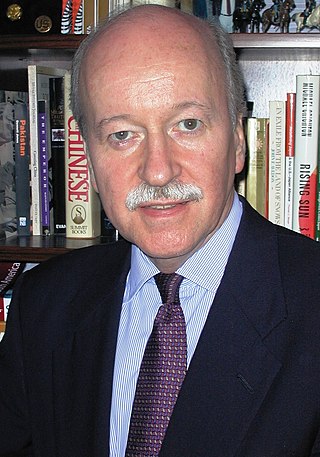
Byron Price was director of the U.S. Office of Censorship during World War II.
Jimmie Lee Hoagland is a Pulitzer prize-winning American journalist. He is a contributing editor to The Washington Post, since 2010, previously serving as an associate editor, senior foreign correspondent, and columnist.
Barry Leon Bearak is an American journalist and educator who has worked as a reporter and correspondent for The Miami Herald, the Los Angeles Times, and The New York Times. He taught journalism as a visiting professor at the Columbia University Graduate School of Journalism.

Steve Coll is an American journalist, academic, and executive.
Louis D. Boccardi was president and Chief Executive Officer of The Associated Press (AP), the world's largest news organization, from 1985 until his retirement in 2003. Prior to assuming the presidency, he served one year as Executive Vice President and Chief Operating Officer and 10 years as executive editor in charge of AP's news operations.
Eugene Leslie Roberts Jr. is an American journalist and professor of journalism. He has been a national editor of The New York Times, executive editor of The Philadelphia Inquirer from 1972 to 1990, and managing editor of The New York Times from 1994 to 1997. Roberts is most known for presiding over The Inquirer's "Golden Age", a time in which the newspaper was given increased freedom and resources, won 17 Pulitzer Prizes in 18 years, displaced The Philadelphia Bulletin as the city's "paper of record", and was considered to be Knight Ridder's crown jewel as a profitable enterprise and an influential regional paper.
Richard A. Oppel is an American newspaper, magazine and digital editor living in Austin, Texas. He was interim editor-in-chief of Texas Monthly, an Austin-based publication with a statewide readership of 2.4 million. The magazine covers the Texas scene, from politics, the environment, industry and education to music, the arts, travel, restaurants, museums and cultural events. While Oppel was editor of The Charlotte Observer (1978–1993), the newspaper earned three Pulitzer Prizes, sharing one for editorial cartoons with The Atlanta Constitution.
Dele Olojede is a Nigerian journalist and former foreign editor for Newsday. He is a winner of the Pulitzer Prize for his work covering the aftermath of the Rwandan genocide. He serves on the board of EARTH University, in Costa Rica, and of The Markup, the New York-based investigative journalism organization focused on the impact of large tech platforms and their potential for human manipulation. He is the founder and host of Africa In the World, a hearts and minds festival held annually in Stellenbosch, in the Cape winelands of South Africa. He was a patron of the Etisalat Prize for Literature.

Seymour Topping was an American journalist best known for his work as a foreign correspondent covering wars in China, Korea, Vietnam, Laos, and Cambodia, and the Cold War in Europe. From 1969 to 1986, he was the second senior-most editor at The New York Times. At the time of his death, he was the San Paolo Professor Emeritus of International Journalism at Columbia University, where he also served as administrator of the Pulitzer Prizes from 1993 to 2002.
Mike McQueen was an American journalist who served as the Associated Press bureau chief for Louisiana and Mississippi.
Walter Robert Mears was an American journalist, author, and educator. Mears worked for the Associated Press (AP) from 1956 until his retirement in 2001. In 1977, he won the Pulitzer Prize for National Reporting for his coverage of the 1976 United States presidential election. After retirement, he taught journalism at the University of North Carolina at Chapel Hill and at Duke University.

Choe Sang-Hun is a Pulitzer Prize-winning South Korean journalist and Seoul Bureau Chief for The New York Times.

Santiago Lyon is Head of Advocacy and Education for the Content Authenticity Initiative, an Adobe-led community of major media and technology companies developing open-source technology to fight mis/disinformation. From 2003 to 2016 he was vice president and Director of Photography of The Associated Press responsible for the AP's global photo report and the photographers and photo editors around the world who produce it. From 1984 to 2003 he was a photographer and photo editor.

Adam Goldman is a two-time Pulitzer Prize-winning American journalist. He received the award for covering the New York Police Department's spying program that monitored daily life in Muslim communities and for his coverage of Russian meddling in the 2016 presidential election.

Martin Fackler is an American journalist and author. He has worked for more than two decades as a foreign correspondent in Japan and China, including six years as Tokyo bureau chief for The New York Times. In 2012, his team was named as finalist for the Pulitzer Prize in International Reporting for its investigative coverage of the March 2011 Fukushima Daiichi nuclear disaster. He has written or co-written eleven books in Japanese, including the best-seller Credibility Lost: The Crisis in Japanese Newspaper Journalism After Fukushima.
The Anthony Shadid Award for Journalism Ethics is a journalism award presented annually by the Center for Journalism Ethics at the University of Wisconsin–Madison. It was originally named Wisconsin Commitment to Journalism Ethics Award in 2010, and was renamed after journalist and alumnus Anthony Shadid who died in 2012. According to the Center website, "the Shadid Award recognizes ethical decisions in reporting stories in any medium, including print, broadcast and digital, by journalists working for established news organizations or publishing individually."
Esther Htusan, is a journalist from Myanmar. She is a former Foreign Correspondent for the Associated Press based in Yangon, Myanmar. In 2016, she was the first person from Myanmar to win the Pulitzer Prize.

Charles J. Hanley is an American journalist and author who reported for the Associated Press (AP) for over 40 years, chiefly as a roving international correspondent. In 2000, he and two AP colleagues won the Pulitzer Prize for Investigative Reporting for their work confirming the U.S. military’s massacre of South Korean refugees at No Gun Ri during the Korean War.
Sam Dolnick is an American journalist, film and television producer, and assistant managing editor for The New York Times. He helped launch The Daily podcast and the documentary series, The Weekly.








